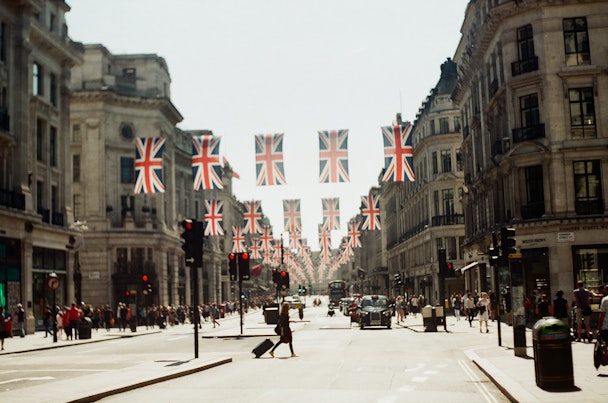Leveraging brand Britain in a post-Covid world
In a fast-changing world, it can be tough to know how to apply 'brand Britain', says Kev Chesters, strategy partner at Harbour Collective, who writes as part of The Drum's Globalization Deep Dive.

One of the biggest challenges of globalization when it comes to taking British brands out to the four corners of the world is that “Britain” is something of an amorphous and ambiguous concept.
Having been proud to be responsible for helping brands as different as Sipsmith Gin and British Airways with their global brand presence in the last few years, I’ve learned a thing or two. I’ve also recently been an advisor to the GREAT campaign, and the UK luxury body Walpole, on how to represent British brands outside of the UK.
The challenge one faces when taking ‘Brand Britain’ outside of these shores is to decide which “Britain” you want to represent. Everyone from Tommy Robinson to Stormzy, Katie Hopkins to Emma Raducanu, Jacob Rees-Mogg to Mo Farah has been held up in various corners of social media as a representation of “British values”.
Whose Britain? What Britain? What is “British?” What values are we lauding? And who oversees them or agrees them?
Well, to a large extent we all do (or can be). It’s about deciding which bit of Britain you want to stand up for and represent. The key is to decide as a brand which bit of the ludicrously wide sociological and demographic tent we call Britain you want to align to or celebrate.
I’m more Team Stormzy than Team Farage. But you’d probably guessed that already.
Britain is genuinely Great (it’s in the name). And if you can take the right bits of it and apply them credibly to your brand then you’re onto a winner. There is nothing wrong with a bit of cliché and familiarity. Remember that Parisians might be bored with baguettes, berets and the Eiffel Tower, but you aren’t. That’s a large reason why you go. Ditto La Dolce Vita, coins in fountains and pasta when you’re in Rome. I’m not talking about just lazily leveraging some Austin Powers Union-jacked soaked cliché-fest. But some of that can be useful too.
There are two key points I really want to land about taking British brands global.
Firstly, the key elements of what people like about Britain are very useful for brands. Heritage and provenance for starters. We have those in spades. Britain has a certain permanence to it that is reassuring. It’s been about for a while – we’re talking millennia here. Most national brands would definitely covet a lot of what we have.
Secondly, the post-Covid world offers an unprecedented opportunity to leverage these factors. When humans suffer trauma (and we’ve just been through a collective trauma) we crave familiarity, certainty and solidity. This is because we want to feel safe, certain and calm. This is the reason that gold prices rise when stock markets fall, or why Bob Marley and Queen went rocketing back up the album charts in the first lockdown. We look for familiarity after periods of uncertainty. It’s societal comfort food.
So much of what Britain has historically stood for are the exact factors that humans seek after periods of trauma. And as the world emerges from the Covid-19 gloom and we start to return to the new (ab)normal, British brands should be very well placed to take advantage if they can work out which bit of Britain they want to leverage. My advice is always to be Britain on her best day.
I’m more than happy to advise on it for brands. Apply within.
Kev Chesters is strategy partner at Harbour Collective.

